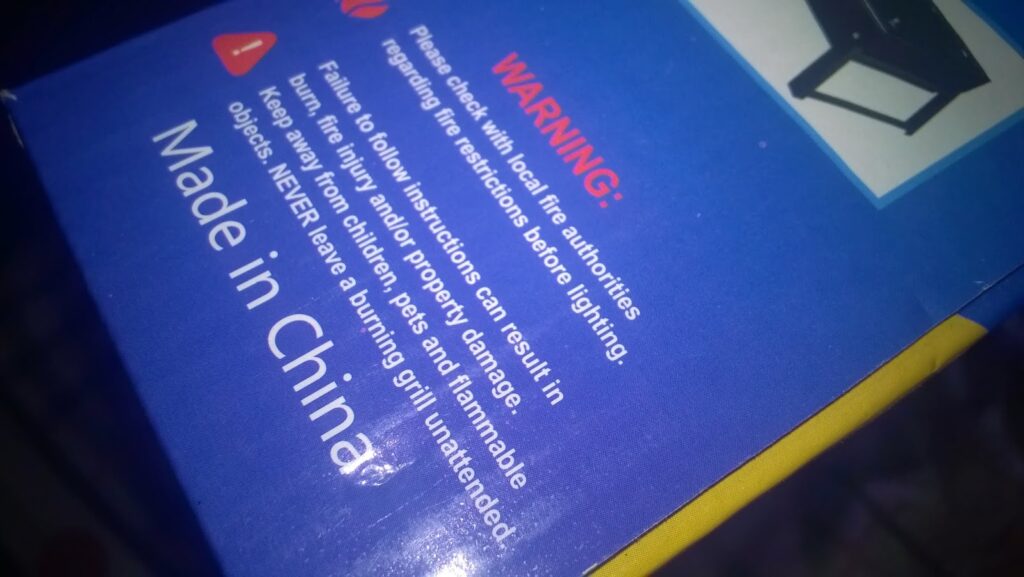
We all know and cannot deny that products originating from China are rampant in the market. However, many people believe that products made in China often have many problems. The article Problems With Products Made In China will help you better understand this issue.
Most of the products produced are different from the sample
If you have the opportunity to go to the US and go shopping, you will know that: Of the total goods sold in the US, only about 20% are “Made in the USA”. The remaining percentage is “Made in China” or Thailand, Mexico, and some other South American or Asian countries.
However, there are many opinions that products made in China do not meet quality standards. China has a wide range of goods from affordable to high-end, from very cheap to expensive products. Besides the goods produced by Chinese enterprises, which are of good quality, some are of poor quality, there are also good quality goods of brands in the world.

A frequent complaint of people who import goods and components from China is that mass-produced goods often do not match the model. This is usually due to several reasons that Problems With Products Made In China give:
– The products may not be made in the same way.
– Products may not be made of the same source material.
– Products also may not be manufactured by the same factory.
A more fundamental problem that you can understand is that if a type of product is mass-produced, they will be questioned about the quality of production.
Supplier fails to deliver goods on time
This can be a stressor for Western businesses, especially since it can lead to financial losses as well as a loss of customer base. Surely we will all feel uncomfortable because we do not keep the delivery date that you promised in advance. For trendy consumer goods, like cosmetics and health and skin care products, delays can have a serious impact on sales.
According to Problems With Products Made In China, delivery delays are most likely related to delivery times of parts or processes. That includes packaging, finishing, and coatings that your primary supplier has contracted with another party.

Remember that anything that is not under your primary supplier’s control can cause delays. Maybe your factory machined your parts on time, but it contracted out polishing and the polishing factory couldn’t finish the products as quickly as they were manufactured. So both you and your primary provider are powerless to change that.
Simply because you don’t have control over the polishing factory’s production plan. The way around this is that you should be aware and add a few days to your delivery time to compensate for any possible delays in transit. This is especially important if your product has complex tooling, special surface finish specifications, or any special coatings.
It is always better to know from the start how the factory will manufacture your product and whether any processes are subcontracted. All this information will help you make better decisions allowing you to prevent possible delays in delivery.
Price change after production
It is not surprising that Chinese factories ask for a slightly higher price after sample production has been completed. This is because they often quote low prices to attract your business. Factories may also adjust prices up if there are some special specification issues with your product.

Before contracting with a supplier from China, it is best to anticipate this problem and take it into account when calculating your profits. It is also important that you communicate all of your product details to the factory from the outset to avoid problems with pricing later on. This is also something that you need to keep in mind in Problems With Products Made In China.
Unstable production quality
When the quality of your product cannot be consistent across batches, it can be very frustrating for importers as this can lead to delays and financial loss for the business. You must first find out the cause of that instability. It could be a process problem, a material problem, or simply the factory doesn’t understand the specifications you require.

All of these issues can be addressed with improved or revised processes or clearer business communications. This is the next information in Problems With Products Made In China. In addition, the addition of quality control steps or people and documentation always makes a positive difference to the quality of your product and its consistency between batches.
This is why you need to be meticulous in formulating your specifications and ensure that you communicate all of its information to your goods suppliers.
Difficult to solve when problems occur
One of the downsides of making in China is that it can be difficult to locate someone to help you when you need it. You can avoid this problem if you want a point of contact while negotiating your production requirements. Whether you are dealing with a factory or trading company in China.
It is necessary to clarify from the outset who the contact person in the Chinese company is. Just having such a person is not enough to support you when you need it. You also need to make sure this person knows what you need help with. If they understand your requirements and all the technical points you are trying to solve, they can also raise these issues with their colleagues at the factory.
Hope the article Problems With Products Made In China will provide useful information for you.




